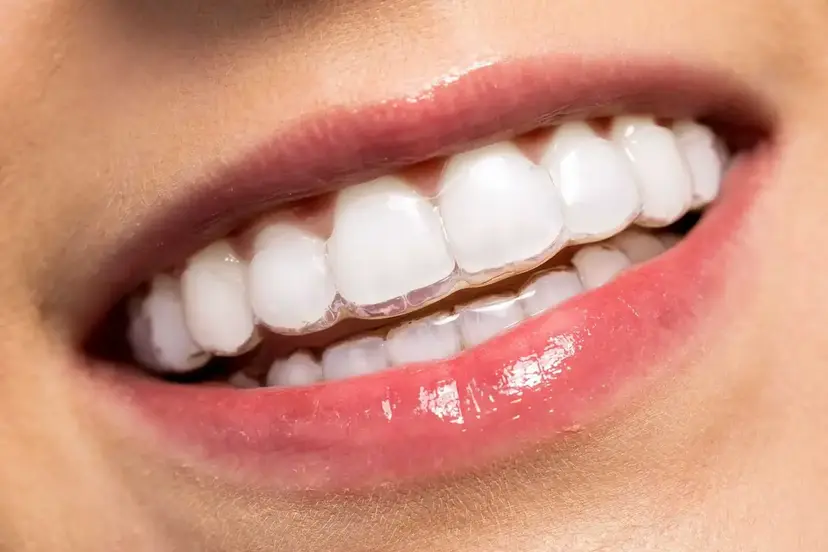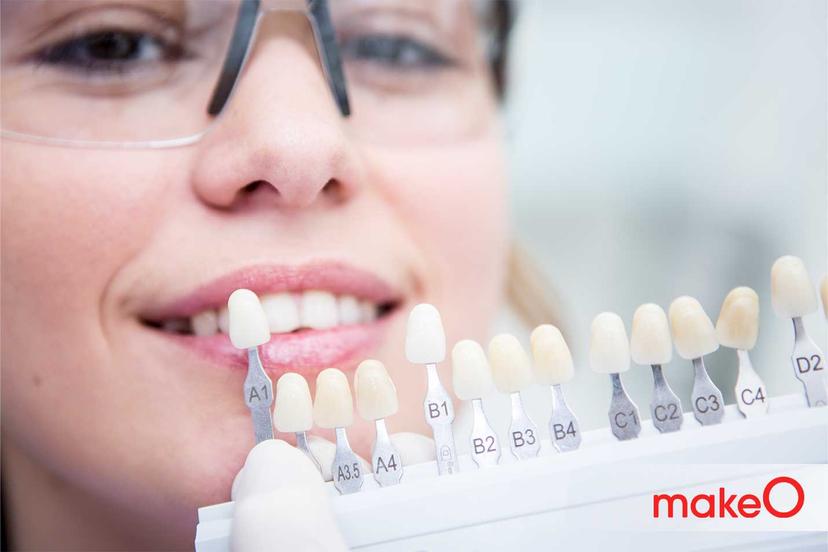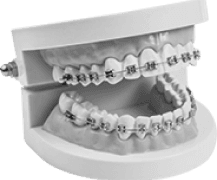MakeO blog
With an increase in awareness about dental health in India, people are always on the lookout for the best ingredients in their dental care products. One such essential component is fluoride. But what makes fluoride so crucial? And is fluoride good for teeth?
This guide will provide you with a better understanding of the importance of fluoride in oral health, ensuring you're equipped with the knowledge to make the right choices for your oral hygiene.
What exactly is fluoride?
Fluoride is a naturally occurring mineral found in water, soil, and various foods. It is known for its dental health benefits and is commonly used in different oral care products.
Fluoride for teeth: What does it do?
Benefits
Fluoride strengthens tooth enamel, which is the hard outer layer of the teeth. This enhanced strength makes teeth more resistant to decay and cavities. Furthermore, fluoride can help reverse early signs of tooth decay. For individuals wondering, "Is fluoride good for teeth?" The simple answer is yes! The usage of fluoride toothpaste is highly recommended by dentists worldwide to maintain optimal dental health.
Effects
By remineralising the enamel, fluoride toothpaste helps repair the early stages of tooth damage. It hampers the ability of bacteria to develop acid, which is a primary cause of cavities and tooth decay.
Types of fluoride used in dentistry
Fluoride, being a cornerstone of dental care, comes in various forms tailored for specific treatments and applications in the realm of dentistry. Here's a breakdown of some of the major forms:
Varnish
A highly concentrated form of fluoride, varnish is painted directly onto the tooth surface. It is easy to use and is especially useful for children and individuals who may be at higher risk for developing cavities.
Foam
Typically used in a dental setting, fluoride foam is applied using a mouth tray. The foam can reach all parts of the teeth, ensuring thorough coverage. It provides a consistent fluoride release to the teeth.
Gel
Fluoride gel can either be applied with a tray or directly onto the tooth surface. It is often used for professional treatments in dental clinics, but there are also over-the-counter versions available for home use which you can check out.
Importance of fluoride intake
Fluoride, when ingested in controlled quantities from sources like water and food, plays an essential role in developing strong teeth in children. This is why many nations, including India, have community water fluoridation to ensure that people, especially children, get the required fluoride for healthy teeth.
Using fluoride toothpaste is one of the simplest ways to ensure we get our daily dose of this mineral. Brushing twice daily with fluoride toothpaste not only helps in maintaining good oral hygiene but also in enhancing the strength and health of teeth.
Side effects of fluoride
Dental Fluorosis
This is a cosmetic condition, causing discolouration or white spots on the teeth due to excessive fluoride during childhood.
Skeletal Fluorosis
It is believed that overexposure to fluoride over time can cause pain and damage to bones and joints.
Neurological Effects
Some studies suggest that excessive fluoride could have adverse side effects on cognitive functions, especially in children.
Endocrine Disruption
High fluoride levels in some cases can affect the functions of your endocrine glands, including the parathyroid gland.
How to Safely Incorporate Fluoride in Your Oral Care Routine?
Fluoride is an essential ally in maintaining our oral health. However, like many good things, moderation and correct usage are the keys to reaping its benefits without facing unwanted side effects. Here's a detailed guide to ensure you're using fluoride safely:
Selecting the Correct Product
Not all oral care products are created equal. When picking a toothpaste, it's important to choose one that contains the right amount of fluoride. Toothpastes with the ADA seal of acceptance have been rigorously tested and are found to contain safe and effective fluoride levels.
Take the Right Amount
One common misconception is that more toothpaste results in cleaner teeth. For adults, only a pea-sized amount of fluoride toothpaste is necessary for each brushing session. For children below the age of three, a rice-grain-sized smear is appropriate, and for children aged three to six, sticking to a pea-sized dollop is recommended.
Right Brushing Technique
Ensure that you brush all surfaces of your teeth - the outsides, insides, and the chewing surfaces. Use gentle, circular motions without pressing too hard, as aggressive brushing can harm both your gums and teeth.
Rinse Correctly
After brushing, avoid immediately rinsing out all the toothpaste. Instead, spit out the excess and let the remaining fluoride toothpaste continue to interact with your teeth for a while longer. This ensures the fluoride has adequate time to act on the enamel.
Supervise Your Children
Children, being naturally curious, might be tempted to swallow toothpaste due to its often pleasant taste. Always supervise young ones while they brush to ensure they're using the correct amount of toothpaste and are not swallowing it. This not only teaches them good habits but also ensures they don't ingest excessive fluoride.
Go for Regular Oral Check-ups
Regularly visit your dentist. They can provide guidance tailored to your specific needs regarding fluoride intake. Sometimes, based on your cavity risk, they might recommend additional fluoride treatments in the form of gels, foams, or varnishes.
Consider Other Alternatives
If you're in an area where tap water is fluoridated, consider this as part of your daily fluoride intake. Moreover, if you're using other fluoride supplements, be mindful of the combined fluoride levels you're consuming.
The Final Verdict
In today's world, where dental health is of utmost importance, understanding the role of fluoride in our oral hygiene routine is non-negotiable. Remember, when it comes to fluoride, the mantra is always "the right amount in the right way."
As for your overall dental health, choosing products like makeO toothsi electric toothbrushes, water flossers, and teeth whitening kits can be a game-changer in maintaining pristine dental health. If alignment issues are your concern then makeO toothsi’s clear aligners treatments are your solution. Stay informed, stay healthy!
FAQs:
Is fluoride good for teeth?
Yes, fluoride is a good ingredient for your teeth’s health. Fluoride strengthens the enamel, making teeth resistant to decay.
Should children use fluoride toothpaste?
Yes, children can use fluoride toothpaste but in controlled amounts. Always supervise young children while they brush with fluoride toothpaste.
How often should I use fluoride toothpaste?
Brushing your teeth twice a day with fluoride toothpaste is recommended for optimal benefits by most dentists and orthodontists across the world.
Can fluoride toothpaste replace regular dental check-ups?
No, regular check-ups are essential. Remember that fluoride toothpaste must complement your other oral hygiene routine like regular dental cleanups and checkups.
Are there natural sources of fluoride?
Yes, foods like oatmeal, raisins, potatoes, grapes and fluoridated water are popular examples of natural sources of fluoride.
related categories
Related articles

Types of Braces: Removable vs Fixed Braces, Which is Right For You?

This Diwali, Smile Bright With makeO Teeth Whitening Kit

Dr. Pravin Shetty: Pioneer in Lingual Orthodontics & Innovative Smile Solutions
How do I Know I’m the Right Candidate for makeO toothsi Teeth Aligners?

